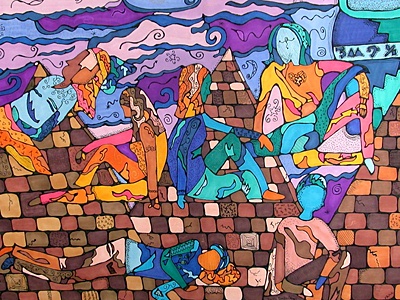All Nonfiction
- Bullying
- Books
- Academic
- Author Interviews
- Celebrity interviews
- College Articles
- College Essays
- Educator of the Year
- Heroes
- Interviews
- Memoir
- Personal Experience
- Sports
- Travel & Culture
All Opinions
- Bullying
- Current Events / Politics
- Discrimination
- Drugs / Alcohol / Smoking
- Entertainment / Celebrities
- Environment
- Love / Relationships
- Movies / Music / TV
- Pop Culture / Trends
- School / College
- Social Issues / Civics
- Spirituality / Religion
- Sports / Hobbies
All Hot Topics
- Bullying
- Community Service
- Environment
- Health
- Letters to the Editor
- Pride & Prejudice
- What Matters
- Back
Summer Guide
- Program Links
- Program Reviews
- Back
College Guide
- College Links
- College Reviews
- College Essays
- College Articles
- Back
The Imperfectness of Political Correctness
An Asian girl finds herself pretending to act dumb at school, scared of feeding into the stereotype that all Asians are smart; a white man dreads firing an African American woman, anxious of coming off as sexist or racist; a reporter undergoes prosecution for trying to record a college protest on public property. Proven by these instances, political correctness does more harm than good, and society needs to get a hold of this truth before it’s too late. The term political correctness describes the means of avoiding behavior or language that appears offensive, P.C. culture describing the form of conduct it takes on. Endorsing political correctness in today’s society not only contradicts anti-discrimination but aids tolerance to multiculturalism in America despite the efforts trying to allow everyone to live equally.
Regardless of the past endeavors attempting to reach the point America stands at now, civilization slowly becomes a breeding ground for disrespect among differing people. Especially seen with P.C. culture, identity abrasion starts to form within relationships, destroying what truly holds bonds together. The term identity abrasion outlines experiences that devalue the significance of how individuals respect one another. A major role in the success of slavery was identity abrasion, taking away respect for African Americans as people. To add on, tensions start forming within relationships, especially in workspaces. Instead of advocating the importance of multiculturalism, society unhealthily avoids any topic relating to the reality of the past. P.C. culture supporters need to understand that avoiding discrimination does not end all discrimination, and it might actually be counterproductive.
Facing the reality of belittlement in society, political correctness certainly brings upon a type of behavior of keeping mouths shut. Some view P.C. culture as a type of mannerism that helps people respect others. Consequently, P.C. culture prevents the freedoms of speech and of the press; it is disconcerting to see protesters on college campuses, public spaces, try to jail reporters. These spaces have the purpose of giving students helpful learning experiences and allowing them to step into the real world, however, P.C. culture’s primary focus is on creating a safe space, not actually giving students the resources to learn. The irony of this all is that people obtain punishment for expressing political or controversial views when it was said controversial views that have allowed our country to form.
Last but not least, P.C. culture imposes a certain risk, leading America's voices to be fully blocked off: society slowly transforms into a place of internally controlled systems. Despite the obvious “rules” that P.C. culture imposes, political correctness could easily be used as a tactic of manipulation for the public. As proven in all of world history, people have the major tendency of following the majority. Seen in instances like the Holocaust, people are blind-sighted and manipulated into thinking one way. P.C. culture turns America into a place where only one opinion is acceptable and where other people cannot speak up about their opinions and views.
The adoption of political correctness in the “social norm” creates a detrimental block in the progressive attempt to reach peak equality in America. There are many drawbacks to political correctness: imposing the risk of identity abrasion, restricting America’s voices, preventing real relationships to form between people with differences, showcasing the tendency to follow the crowd, and so much more. “Solving” discrimination takes much more than just sitting back and trying to forget everyone’s differences, it takes the willpower to remember that differences are what define and characterize the people of this country, and P.C. culture might just take those remarkable traits away.

Similar Articles
JOIN THE DISCUSSION
This article has 0 comments.

Although I don't fully oppose political correctness, I feel that society is taking it to a whole new level. I believe that it is important to not be discriminatory, but we as a community shouldn't let political correctness block voices from being heard.